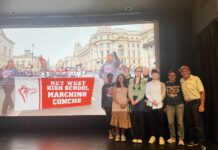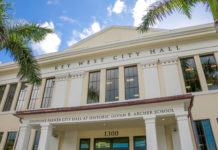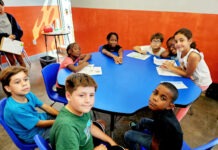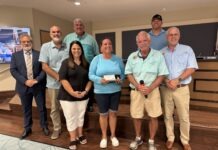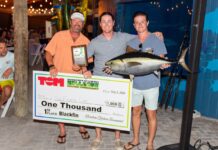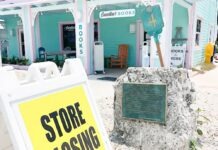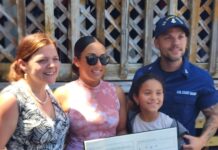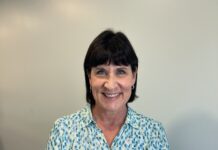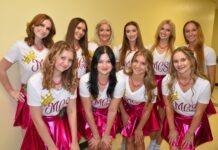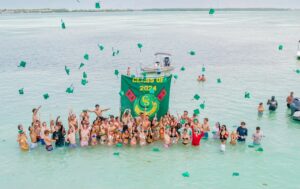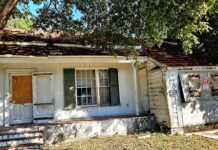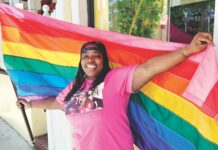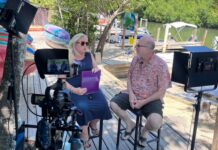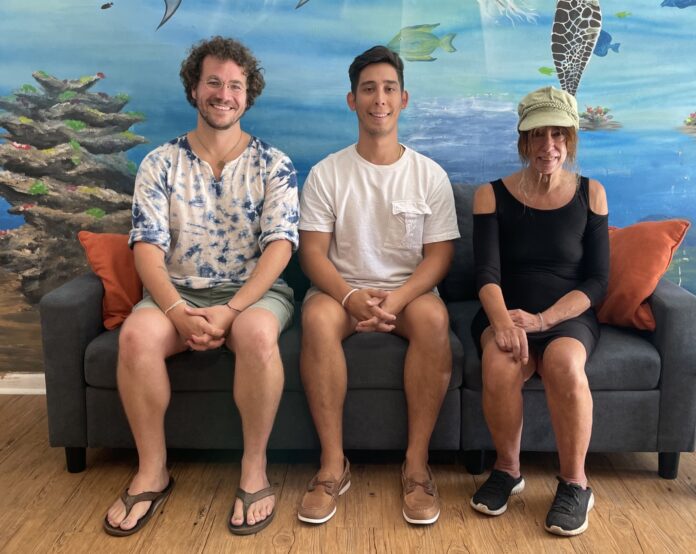
Adulthood is a daunting endeavor, even for kids from stable, supportive families. So how is someone who didn’t grow up among mature, secure, capable adults expected to become one? Where do kids from a broken home, a group home, the foster home circuit or no home acquire the trust, confidence, skills and support they’ll need to navigate the rest of their life?
Enter the Florida Keys Children’s Shelter (FKCS). Its Transitional Living Program (TLP) in Key West helps young residents become mature, secure, well-rounded adults.
The residential program includes two five-bedroom, side-by-side townhouses in Poinciana Plaza on Duck Avenue that serve as transitional housing for young adults ages 18-21 and/or 16- to 17-year-old emancipated minors.
Guys live in one townhouse, girls are in the other, with full-time, live-in case managers for each side.
Transgender and gender-expansive individuals choose the side that aligns with their needs. The girls’ side is currently at capacity. The guys’ side has a few spaces open, but both will likely have a waitlist by the end of the year.
With live-in case managers — Giordan Pinzon with the guys and Meryl Berman with the girls — young residents find the support they need — and often have never had — to transition from difficult family situations or state custody programs into self-sufficient, independent adults.
“Most of these young individuals have never had a safe place to call their home due to their circumstances,” Pinzon said. “We’re structuring a plan to fit each of their specific needs. We want them to know this program is a sanctuary where they will be safe and given all the assistance they need to grow into their full potential.”
In lieu of rent, residents deposit $300 per month into a savings account, a nest egg that is theirs to keep upon exiting the program.
They get help finding jobs, educational options, medical and mental health care. They participate in skill-building workshops. And though they begin working immediately with TLP staff on an individualized exit strategy toward self-sufficiency, they may stay up to two years while working to become the adult they envision.
Upon entering the program, residents must agree to adhere to a nightly curfew and a drug- and alcohol-free environment.
Funded in October 2021 with a $600,000 federal grant from the U.S. Department of Health and Human Services, the program is maturing along with its residents.
The TLP added an outreach coordinator to its team in March 2023. Chris McNulty is working to increase awareness of the program and help build partnerships in the community, which has already proven willing and eager to help support the young Key Westers. (McNulty is also a contributing writer with the Key West Weekly and wrote this article.)
Individuals and businesses have donated and spruced up a trike from Island Bicycle for one young resident. Another got help accessing higher education through St. Leo’s University. Community Health of South Florida (CHI) regularly helps participants access health care services. Local businesses have hired the young residents and local business owners have donated group outings, such as a dinner at Benihana, which many had never before experienced.
Since its inception, 12 young people have successfully completed the program, but have not been abandoned by it. Each TLP alum continues to receive individual assessments, supportive planning and regular check-ins from Berman and Pinzon as they maneuver young adulthood and life in Key West.
Though success looks different for each resident, the core goals always include stable housing, employment, education, permanent connections and social-emotional well-being.
The TLP also works closely with Project Lighthouse, FKCS’s street outreach program in Key West that operates a drop-in center at 1102 Truman Ave. for runaway, homeless and street youth aged 21 and under.
Project Lighthouse program coordinator Jai Somers and outreach specialist Jess Warne offer necessities like donated clothing, laundry and shower facilities, as well as employment assistance, free workshops and creative outlets. TLP residents regularly participate in programs at Project Lighthouse and receive additional support from Somers and Warne as they navigate their way into adulthood.
“We’re not just meeting a need; we’re actively shaping the future of our youth,” said Ben Kemmer, CEO of the Florida Keys Children’s Shelter. “We’re excited to continue growing and providing even more support and opportunities for the young adults we serve.”If you know a young person in need of transitional housing who is ready to make the commitment to their future, contact Pinzon at gpinzon@fkcs.org. If you are a local business, artist or expert interested in getting involved to support the TLP residents through employment opportunities or facilitating workshops, contact McNulty at cmcnulty@fkcs.org.

